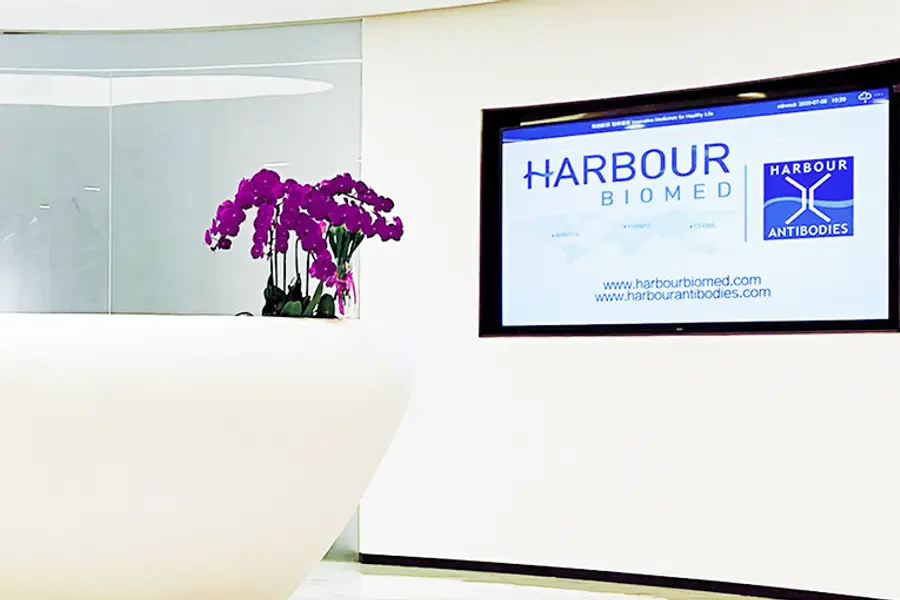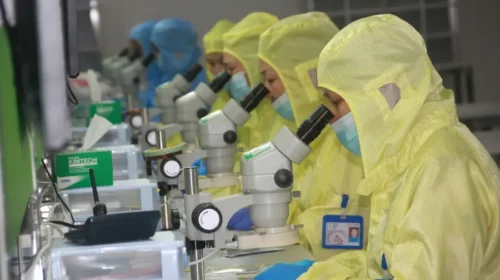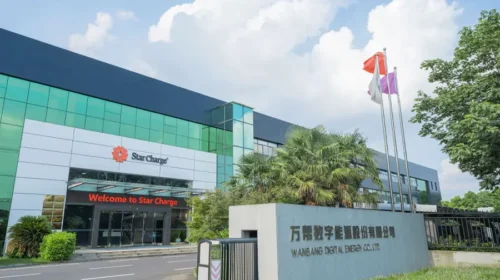HBM notches up another mega deal but is the model sustainable?

The biotech has agreed to sell rights to one of its cancer drugs under development for up to $670 million, adding more fuel to its share price rebound this year
Key Takeaways:
- The Chinese drug developer is on a mission to partner with big names in global pharma, having scored 17 licensing-out deals to date
- But without any revenue from commercialized products, its earnings are prone to volatility
By Molly Wen
China’s HBM Holdings Ltd. (2142.HK) is building a reputation for itself as the ultimate biopharma partner.
The developer of antibody-based therapies has turned partnership deals into an active business model by licensing its discoveries to global names in the pharmaceutical industry. The company’s list of strategic partners grew even longer on Monday when it announced a pact with Japan’s Otsuka Pharmaceutical Co. Ltd. (4578.T) on a cancer immunotherapy drug.
In an agreement worth up to $670 million, the Japanese partner gained rights to develop, produce and sell the HBM antibody therapy in markets outside of greater China. The candidate drug, HBM7020, is designed to lock onto two target proteins, BCMA and CD3, to identify and destroy cancer cells.
HBM, which acts as the holding company for Harbour Biomed, stands to gain $47 million in upfront and near-term payments, with further income of up to $623 million linked to development and commercial milestones, as well as royalties on future sales.
The experimental drug in question, which is designed to spur T-cells to destroy malignant B-cells, was approved for Phase One clinical trials in China in 2023. A bispecific antibody targeting the same antigens as HBM7020 but made by Johnson & Johnson has been cleared for treating multiple myeloma, a type of blood cancer.
The link-up with Otsuka takes HBM’s tally of licensing-out deals to 17, according to Pharmcube, a provider of pharmaceutical data and analysis. In the first half of 2025 alone, HBM entered into six agreements involving licensing or NewCo transactions, in which drugs under development are spun off into independent firms.
In particular, its ties with pharma giant AstraZeneca (AZN.US) are growing ever tighter. HBM signed a collaboration agreement worth up to $4.58 billion with AstraZeneca (AZN.US) in March to jointly develop multispecific antibodies for autoimmune diseases, cancer and other conditions. The Anglo-Swedish multinational also gained rights to license two preclinical projects and the option to identify additional targets in future. In return, the Chinese biotech got $175 million up front and in near-term payments, as well as option-related fees and up to $4.4 billion in development and commercial milestone payments, plus a share of future sales.
It was the third such collaboration between HBM and AstraZeneca. Back in 2022, HBM licensed out another bispecific antibody to AstraZeneca, CLDN18.2xCD3, for $350 million. Two years later a preclinical monoclonal antibody project from Nona Biosciences, a wholly owned HBM subsidiary, was signed over for more than $600 million. The partners have become more closely entwined with the latest deal, as AstraZeneca subscribed for 9.15% of newly issued HBM shares for $105 million and agreed to set up a joint innovation center in Beijing.
The keen interest from Big Pharma has also excited the stock market. After the Otsuka deal was announced, HBM’s share price jumped 12.32% in a single day. Buoyed by a rebound in the biopharma sector, HBM’s stock soared 350% in the first half of this year, far outpacing a 58% gain in the Hang Seng Innovative Drug Index.
Volatile earnings
However, that surge comes off a low base. When the biopharma sector was struggling through a downturn, HBM was forced to divest assets and pare back its research projects. Facing persistent losses and financing difficulties, the company transferred its core product, batoclimab, to a subsidiary of CSPC Pharmaceutical Group (1093.HK) in 2022, and halted Phase Three trials for another key asset. The company also sold its Suzhou manufacturing base to WuXi Vaccines, a subsidiary of WuXi Biologics (2269.HK), incurring a loss of 61.93 million yuan ($8.7 million).
In its business reset, HBM established a wholly owned subsidiary, Nona Biosciences, in late 2022 to offer drug research services based on its fully human antibody transgenic mice platform and its in-house bispecific immune cell engager platform. Meanwhile, another subsidiary, Harbour Medical, handles global clinical development of HBM’s own drug discoveries.
The twin-engine approach allows HBM to focus resources on its own research projects, emulating a business model used by U.S. innovative drug firm Regeneron (REGN.US).
HBM founder and CEO Wang Jinsong has frequently drawn parallels between the two companies in media interviews, citing the partnership with AstraZeneca as a key step in transforming into a world-class company like Regeneron.
The Chinese drug developer turned a second straight annual profit in 2024, but revenues fell 57% to $38.10 million and net profit plunged 88% to $2.78 million from the previous year. Without any product income, HBM relies heavily on fees from partnership deals, making its earnings volatile.
Its price-to-earnings (P/E) ratio stands at a lofty 325 times, many multiples more than Regeneron’s 13 times. The headline deals with pharma giants may offer a short-term fix, but sustained success will hinge on continued innovation and proven results from the licensed-out assets. Investors should keep in mind the inherent risks from a lack of commercialized products.
To subscribe to Bamboo Works weekly free newsletter, click here




